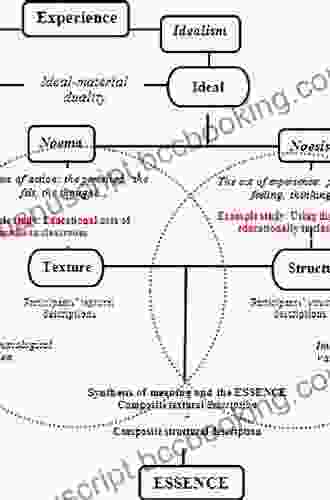Unlocking the Depths of Phenomenological Research: A Comprehensive Guide to The Theoretical Framework

Phenomenological research, a qualitative research approach, seeks to explore and understand the lived experiences and subjective perspectives of individuals. This approach has gained significant traction in various disciplines, including psychology, education, healthcare, and social sciences. At its core lies the belief that human experiences are unique, context-bound, and constructed through interactions with the world. To provide a solid foundation for phenomenological research, researchers must grasp the theoretical framework underpinning it.
Phenomenology, as a philosophical movement, emerged in the early 20th century with Edmund Husserl as its pioneer. Husserl's work explored the nature of consciousness and experience, emphasizing the importance of suspending assumptions and biases (epoché) to uncover the essential structures of consciousness.
Husserl's phenomenological method involves the following key steps:
5 out of 5
| Language | : | English |
| File size | : | 9020 KB |
| Text-to-Speech | : | Enabled |
| Enhanced typesetting | : | Enabled |
| Print length | : | 250 pages |
- Intentionality: Experiences are always directed towards objects or phenomena.
- Epoché: Bracketing assumptions and beliefs to focus on the phenomena themselves.
- Eidetic Reduction: Identifying essential structures and meanings of experiences.
Another influential figure in phenomenology is Martin Heidegger, who extended Husserl's work by focusing on the role of existence and being in human experience. Heidegger's concept of "Dasein" (being-in-the-world) highlights the situatedness and meaning-making processes of individuals in their environment.
Phenomenological research aims to understand experiences in their full richness and complexity. It involves:
- Experiential Focus: Exploring the subjective perspectives of individuals on particular phenomena.
- Interpretive Approach: Analyzing and interpreting data to uncover deeper meanings and patterns.
- Contextualization: Considering the experiences within their social and cultural contexts.
To successfully apply the theoretical framework of phenomenology in research, researchers should consider the following principles:
- Phenomenological Attitude: Approaching the research with openness, curiosity, and a willingness to suspend judgments.
- Methodological Rigor: Adhering to ethical guidelines, ensuring data accuracy, and maintaining reflexivity.
- Analytical Methods: Employing qualitative analysis techniques, such as thematic analysis, narrative analysis, or hermeneutic interpretation.
- Theoretical Justification: Explicitly connecting the research design, methods, and findings to the theoretical foundations of phenomenology.
Interpreting phenomenological findings requires a nuanced understanding of the theoretical framework. Researchers should focus on:
- Uncovering Essential Structures: Identifying the invariant patterns and structures that emerge from the data.
- Developing Typologies or Themes: Grouping experiences into meaningful categories or themes.
- Exploring Subjectivity: Analyzing how individual perspectives shape the experiences under study.
- Contextualizing Findings: Interpreting the findings in relation to the participants' social and cultural contexts.
The theoretical framework of phenomenological research provides a robust foundation for exploring and understanding human experiences. By embracing the principles of epoché, intentionality, and eidetic reduction, researchers can gain insights into the subjective worlds of individuals. Through careful application of the framework and rigorous interpretation, phenomenological research empowers researchers to uncover deep and meaningful patterns within human experiences.
5 out of 5
| Language | : | English |
| File size | : | 9020 KB |
| Text-to-Speech | : | Enabled |
| Enhanced typesetting | : | Enabled |
| Print length | : | 250 pages |
Do you want to contribute by writing guest posts on this blog?
Please contact us and send us a resume of previous articles that you have written.
 Book
Book Novel
Novel Page
Page Chapter
Chapter Text
Text Story
Story Genre
Genre Reader
Reader Library
Library Paperback
Paperback E-book
E-book Magazine
Magazine Newspaper
Newspaper Paragraph
Paragraph Sentence
Sentence Bookmark
Bookmark Shelf
Shelf Glossary
Glossary Bibliography
Bibliography Foreword
Foreword Preface
Preface Synopsis
Synopsis Annotation
Annotation Footnote
Footnote Manuscript
Manuscript Scroll
Scroll Codex
Codex Tome
Tome Bestseller
Bestseller Classics
Classics Library card
Library card Narrative
Narrative Biography
Biography Autobiography
Autobiography Memoir
Memoir Reference
Reference Encyclopedia
Encyclopedia Molly Forbes
Molly Forbes Frank Ching
Frank Ching Markes E Johnson
Markes E Johnson Tamara Ferguson
Tamara Ferguson Rita Duponty
Rita Duponty Jeanne Filler Scott
Jeanne Filler Scott Gregory Collins
Gregory Collins Samantha Downing
Samantha Downing F C Yee
F C Yee Heather Lynn
Heather Lynn Kelly Starling Lyons
Kelly Starling Lyons Ethan Casey
Ethan Casey Farzana Nayani
Farzana Nayani Marta Mcdowell
Marta Mcdowell Felix Martin
Felix Martin Robert Solomon
Robert Solomon Fawzia Gilani Williams
Fawzia Gilani Williams Frances Thomas
Frances Thomas Marcos Fava Neves
Marcos Fava Neves Felix Rauner
Felix Rauner
Light bulbAdvertise smarter! Our strategic ad space ensures maximum exposure. Reserve your spot today!

 Demetrius CarterOne Hundred Writers' Most Memorable Meals and Other Stories: A Literary Feast...
Demetrius CarterOne Hundred Writers' Most Memorable Meals and Other Stories: A Literary Feast... Jean BlairFollow ·3.2k
Jean BlairFollow ·3.2k Bruce SnyderFollow ·16.1k
Bruce SnyderFollow ·16.1k Ernest ClineFollow ·5.4k
Ernest ClineFollow ·5.4k Curtis StewartFollow ·16.1k
Curtis StewartFollow ·16.1k Cameron ReedFollow ·12.6k
Cameron ReedFollow ·12.6k Larry ReedFollow ·2.3k
Larry ReedFollow ·2.3k Tim ReedFollow ·10.9k
Tim ReedFollow ·10.9k Osamu DazaiFollow ·5.1k
Osamu DazaiFollow ·5.1k

 W.H. Auden
W.H. AudenStep into a World of Thrilling Deception: Don Blink by...
Unveiling the Masterpiece of Suspense:...

 Jaylen Mitchell
Jaylen MitchellUnleash Your Creativity with "This Easy Origami": A...
: Embark on an Enchanting Voyage into the...

 Vladimir Nabokov
Vladimir NabokovEmpowering Home Births: A Comprehensive Guide for Fathers...
An In-Depth Exploration of Paternal...

 Juan Rulfo
Juan RulfoThe Maya Exodus: Indigenous Struggle for Citizenship in...
The Maya Exodus: Indigenous Struggle for...

 Julio Ramón Ribeyro
Julio Ramón RibeyroKana Made Easy: Dive into Japanese the Fun and Effortless...
Unveiling the Secrets...
5 out of 5
| Language | : | English |
| File size | : | 9020 KB |
| Text-to-Speech | : | Enabled |
| Enhanced typesetting | : | Enabled |
| Print length | : | 250 pages |












